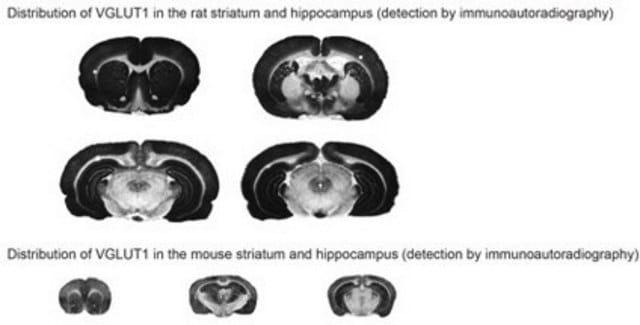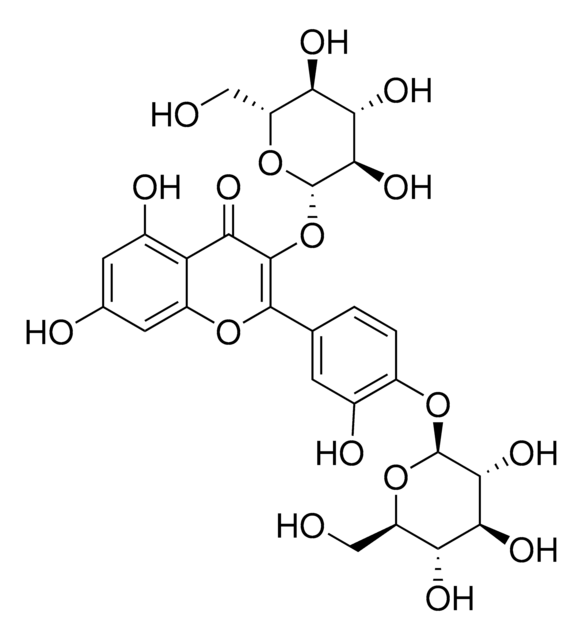00140585
Isoquercitrin
primary reference standard
Synonym(s):
Quercetin 3-β-D-glucoside, 3,3′,4′,5,7-Pentahydroxyflavone 3-β-glucoside, Isoquercitrin
About This Item
Recommended Products
grade
primary reference standard
shelf life
limited shelf life, expiry date on the label
manufacturer/tradename
HWI
technique(s)
HPLC: suitable
gas chromatography (GC): suitable
SMILES string
OC[C@H]1O[C@@H](OC2=C(Oc3cc(O)cc(O)c3C2=O)c4ccc(O)c(O)c4)[C@H](O)[C@@H](O)[C@@H]1O
InChI
1S/C21H20O12/c22-6-13-15(27)17(29)18(30)21(32-13)33-20-16(28)14-11(26)4-8(23)5-12(14)31-19(20)7-1-2-9(24)10(25)3-7/h1-5,13,15,17-18,21-27,29-30H,6H2/t13-,15-,17+,18-,21+/m1/s1
InChI key
OVSQVDMCBVZWGM-QSOFNFLRSA-N
Looking for similar products? Visit Product Comparison Guide
General description
Exact content measured by quantitative NMR can be found on the certificate.
Application
- Development of a synergistic cloud point extraction (SCPE) method for the extraction of isoquercitrin in rat plasma samples and its subsequent analysis by high-performance liquid chromatography (HPLC)
- Electrochemical analysis of isoquercitrin and epigallocatechin gallate by cyclic voltammetry using carbon nanotubes based electrode
- Simultaneous determination of rutin and isoquercitrin by differential pulse voltammetry (DPV) using glassy carbon electrode (GCE) modified with deposition of thio-β-cyclodextrin functionalized graphene/palladium nanoparticles (SH-β-CD-Gr/PdNPs) for pharmaceutical and medical analysis
- Multi-residue analysis of isoquercitrin, campesterol, emodin 8-O-β-D-glucopyranoside, and quercetin in dried stem and flower extracts of Reynoutria sachalinensis by high-performance liquid chromatography coupled with diode-array detection
Other Notes
Storage Class Code
11 - Combustible Solids
WGK
WGK 3
Choose from one of the most recent versions:
Certificates of Analysis (COA)
Don't see the Right Version?
If you require a particular version, you can look up a specific certificate by the Lot or Batch number.
Already Own This Product?
Find documentation for the products that you have recently purchased in the Document Library.
Customers Also Viewed
Protocols
HPLC Analysis of Polyphenols in Nero d'Avola Red Wine on Discovery® HS C18 (UV 280 nm)
Our team of scientists has experience in all areas of research including Life Science, Material Science, Chemical Synthesis, Chromatography, Analytical and many others.
Contact Technical Service













